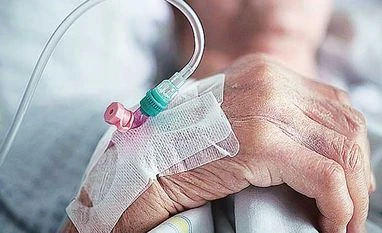The Central government on Tuesday told the Supreme Court that passive euthanasia is law of the land with safeguards by virtue of an earlier judgement of the top court.
The top court by its order on March 7, 2014 in Aruna Shanbaug case had permitted passive euthanasia or passive mercy killing) under certain circumstances provided it was backed by the permission of the high court concerned.
The government told the constitution bench of Chief Justice Dipak Misra, Justice A K Sikri, Justice A M Khanwilkar, Justice D Y Chandrachud and Justice Ashok Bhushan that a draft bill permitting passive euthanasia with necessary safeguards was already before it for consideration.
The Management of the Patient with Terminal Illness Withdrawal of Medical Life Support Bill - is being considered by the government, Additional Solicitor General P S Narasimha told the constitution bench.
The draft bill was originally authored by the Law Commission and was annexed with its second report on passive euthanasia. Later the government appointed a committee of senior doctors which after considering suggestions from public framed the final draft that is now before the government.
However, the Central government expressed its reservation to permitting "living will" both on grounds of "principle" and "practical" considerations.
More From This Section
Saying that it would not be beneficial, Narasimha told the court that the "consequences of living will are negative".
The constitution bench is hearing a plea by NGO Common Cause seeking that a person should be allowed to make a living will stating that all medical support should be withdrawn if in the opinion of the doctors he is in that state of terminal illness where a turnaround is not possible.
Narasimha said that in passive euthanasia, the views of the immediate family members and that of the medical board is the crucial condition.
Appearing for Common Cause, counsel Prashant Bhushan, referring to the position stated by Narasimha, said that in that case, existence of "living will" was only an authorisation to withdraw all life saving medical support in the state of irreversible terminal illness.
As Bhushan argued for provision, the court, while raising many queries, said that if permitted, it would be accompanied by various safeguards. It also expressed its misgivings on its misuse.
Hearing in the case will continue on Wednesday.
)